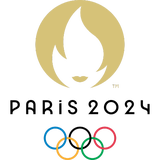
AP Interview: Polish WADA hopeful touts anti-doping plans
WARSAW, Poland (AP) — Poland's sports minister said Monday the steps he has taken to fight doping in his country have given him the experience needed to become the next head of the World Anti-Doping Agency.
Witold Banka says that in his three years as minister, he changed the law to start an independent panel that decided sanctions for doping, stepped up Poland's anti-doping regulations to top global standards and created Poland's national anti-doping agency, POLADA, with a strong investigative body.
He raised spending on testing and upgraded Poland's anti-doping laboratory, making it independent of athletic governing bodies. The new law means anyone who provides a banned substance to an athlete can face up to three years in prison and those who are consciously doping can face financial consequences.
"I am sure that I would not have been in the place where I am now if I had not changed some things in Poland and if I had not done them well," Banka, 34, said about being chosen in January to represent Europe in the election.
Banka sees the need for better education of sports figures against doping and their greater participation in fighting it. He believes there used to be a "negligent approach" as athletes were not properly educated about the various consequences of doping.
Another candidate, Marcos Diaz of the Dominican Republic, has suggested that the next WADA president should best come from his region, where improvements are needed in testing and fighting doping.
"I have the necessary solutions and I understand the region's problems," Banka said in response.
Banka said that if elected, he would set up an Anti-Doping Solidarity Fund in which sponsors would contribute to the development of a much wider network of laboratories capable of testing samples. There are currently 30 such laboratories around the world and only one in Africa, which makes expediting samples costly and time-consuming.
As for the doping scandal in Russia that had led to a three-year suspension of its anti-doping agency, RUSADA, Banka said that the "subject is not yet closed" as the data WADA has received from Russia still needs to be "analyzed in detail."
A former relay runner with a bronze medal from the 2007 World Championships, Banka said those who are doping are "cheats" who, when they win, take away a once-in-a-lifetime moment of glory from the true, clean winners.
He cited the case of Polish hammer thrower, Anita Wlodarczyk, who finished second at the 2013 World Championships. Russia's Tatyana Lysenko was later disqualified for doping, and Banka is trying to find a way to give Wlodarczyk the gold medal in a way that mirrors a ceremony in front of an audience after the event finishes.
Banka hopes to replace IOC member Craig Reedie of Britain, who is completing a six-year term. He is running against Diaz, also a member of WADA's executive committee, and WADA vice president Linda Helleland, who is running without a formal nomination.
The WADA presidency will be decided in November at a conference in Katowice, Poland.
